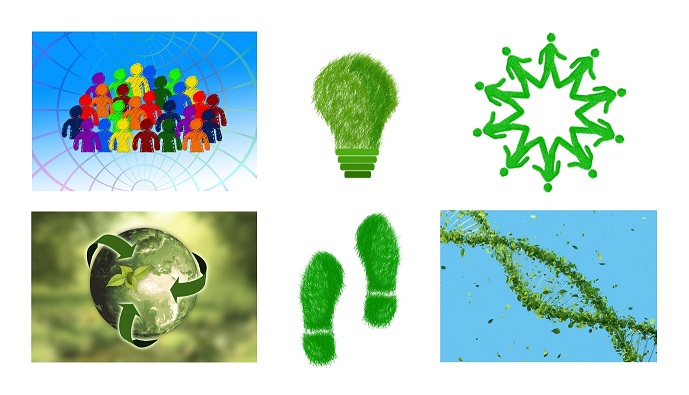
Sustainability in the SATH
As a big veterinary hospital caring for over 10000 pets every year and with just under 200 members of staff the SATH is very aware of its carbon footprint. Both staff and management feel very strongly that we must take responsibility and try to improve our sustainability, striving to continuously do better.
To this end a sustainability working group was created at the end of 2020 and after some initial monitoring and recording of resource usage and waste disposal an action plan has been created and is updated every year. We also have a School of Veterinary Science environmental policy. Our sustainability champion is Rita Goncalves, who is part of the Neurology service and also the Sustainability Lead for the School of Veterinary Science.
Several steps towards becoming more environmentally sustainable have been taken over the years but the SATH is seeing this as a long-term project that should constantly evolve and progress. Some examples of changes so far include:
- We have significantly reduced our usage of single use materials and replaced them with reusable alternatives whenever this is safe and does not affect our strict infection control policies.
- Our anaesthesia team closely monitors and records our anaesthetic gas use and reduces this whenever possible by using local anaesthesia and low flow anaesthesia in the majority of surgical procedures. Nitrous oxide is not used.
- We have improved our waste disposal, increasing our recycling options and reducing our clinical waste volume.
- We circulate quarterly newsletters with sustainability information and tips.
- We have created an internal page for swapping used things, such as child car seats, bicycles, cooking appliances, books, etc. reducing waste in any way possible.
- Final year students are organising litter picking events, green travel to work days and wild flower planting on the campus.
The SATH sustainability working group works closely with the School of Veterinary Science's working group and the University's dedicated sustainability team. The University has an ambitious sustainability strategy that, amongst other initiatives, is aiming to reach net zero by 2035 and is embedding sustainability throughout the curriculum in every degree.
The Liverpool Veterinary Sustainability Society was created by our students in 2020, aiming to introduce sustainable initiatives within the vet school and the local community and working alongside the staff of all the veterinary hospitals at Leahurst. We make sure we keep in touch with the LVSS representatives so we listen to any suggestions they have and try to support their projects. If you have any ideas or suggestions, please email the sustainability team at vet-sustainability@liverpool.ac.uk.
How you can help
- Ensure you do not dispose of unused medication at home. These should not go into normal household waste so please bring them back to us and we will dispose of them correctly through incineration to ensure they do not contaminate the environment.
- You can get reusable puppy pads for toilet training. We use them at the SATH with many patients and this has allowed us to significantly reduce our single use non-recyclable plastics!
- Consider using biodegradable or recycled cat litter and ensure dog poo bags are fully compostable (not just biodegradable).
- Look into eco-friendly toys, collars and pet beds – there are loads of options currently available!
- Keep in mind that obesity in our pets not only increases the risk of diseases such as diabetes but also increases their carbon footprint because they will consume larger amounts of food, using up natural resources and generating emissions and waste. Keeping your animals healthy will also minimize the need for medications and interventions, reducing the carbon footprint of animal healthcare.
- The vet profession is aware of its role in addressing the climate challenge – Vet Sustain is supporting vets through this process and you can find further information on their website.